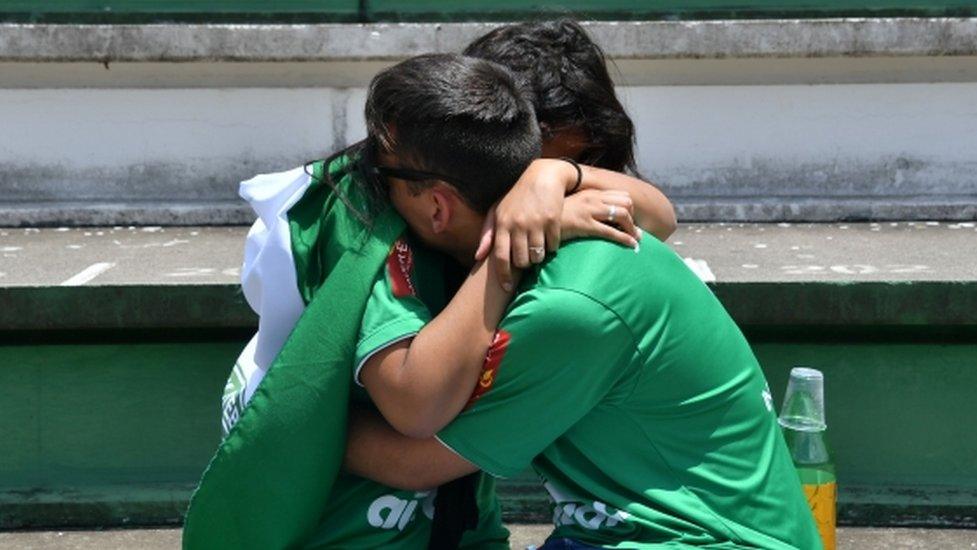Chapecoense plane crash: Pilot 'was warned over fuel'
- Published
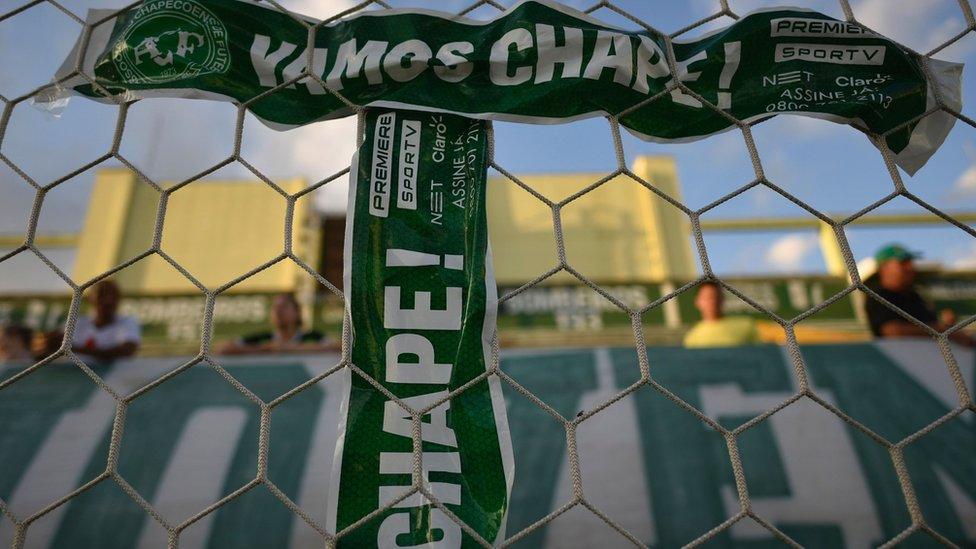
Tributes have been paid to the Chapecoense team in Medellin and in Chapeco, Brazil
The pilot of a charter plane that crashed in Colombia on Monday had been warned before taking off from an airport in Bolivia that he might not have enough fuel, a report says.
An airport official raised the concern after checking the plane's flight plan, Bolivia's Deber newspaper said.
Seventy-one people died in the crash, including members of a Brazilian football team. Six people survived.
Bodies of the victims are due to be repatriated to Brazil.
Colombian authorities have said evidence is growing that the British-made BAE 146 Avro RJ85 aircraft ran out of fuel as it tried to land at Medellin airport. Experts say it was flying at, or very near, its maximum range.
In a leaked tape, the pilot, Miguel Quiroga, can be heard warning of a "total electric failure" and "lack of fuel".
On Thursday, Bolivia's aviation authority suspended the operating licence of charter airline LaMia, which was part-owned by Mr Quiroga, and two other aviation officials.
In the report carried in Deber, the Bolivian airport authority official at Santa Cruz airport said she raised concerns that the plane's fuel load was only enough for the exact flight time.
The paper said she described how the airline's clerk, who died in the crash, had told her the pilot was confident he had enough fuel. Despite her concerns, the flight plan was passed on to Bolivian air control.
Bolivian officials have not yet commented on the report.
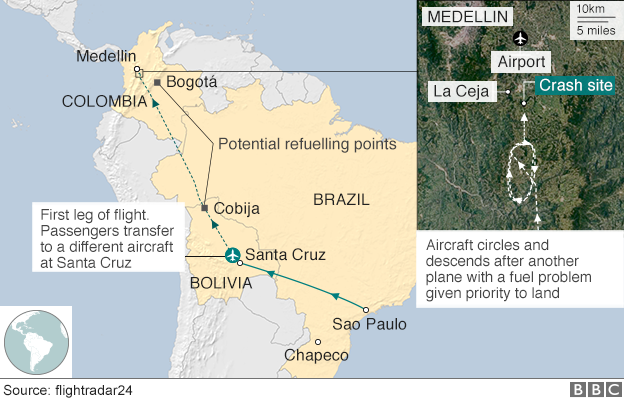
An earlier report carried by Brazil's O Globo newspaper suggested that because of a delayed departure, a refuelling stop in Cobija - on the border between Brazil and Bolivia - was abandoned because the airport did not operate at night.
The pilot had the option to refuel in Bogota, it said, but headed straight to Medellin.
The chief executive of LaMia, Gustavo Vargas, said on Wednesday that the plane should have had enough fuel for about four and a half hours and any decision to refuel was at the pilot's discretion.
In another development, the Colombian air traffic controller who received the distress call said she had received death threats following the crash.

Footballers and flight crew were filmed on board the doomed plane as it prepared for take-off
"I did all that was humanly possible and technically necessary to preserve the lives of the passengers, but unfortunately my efforts weren't enough," Yaneth Molina wrote in a letter to her colleagues that was later released to the media.
On the approach to Medellin, the pilot had initially sought permission to land urgently but another plane was given priority because it had suffered a fuel leak. The LaMia flight was told to circle for seven minutes.
Meanwhile, coffins of the Brazilian victims are due to be flown out of Medellin on Friday.
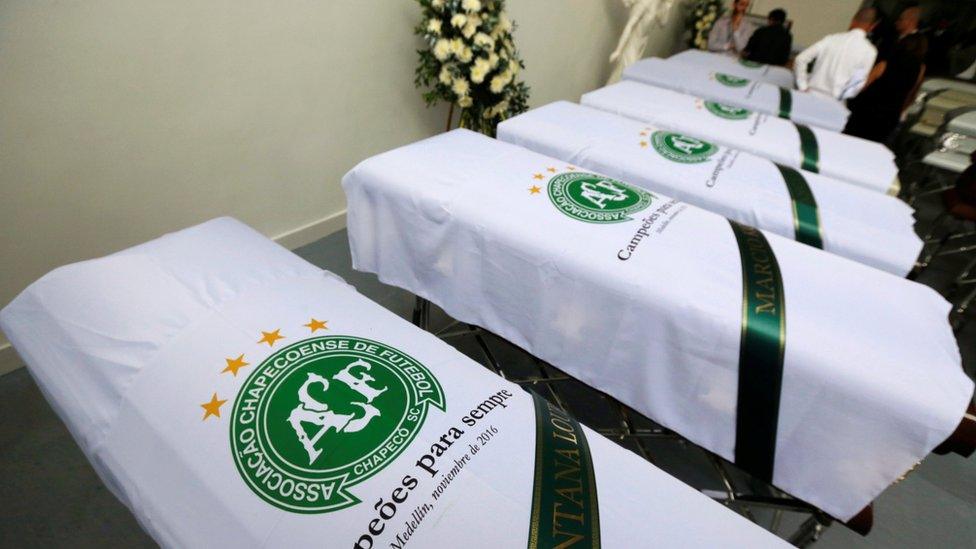
Coffins, draped with the Chapecoense crest, are to be flown back to Brazil
The Brazilian team Chapecoense had been due to play a football cup final against Atletico Nacional in the city.
In the squad's home town of Chapeco, in southern Brazil, temporary structures have been set up in the football stadium for an open-air wake on Saturday.
Colombian officials say the plane's "black boxes", which record flight details, will be sent to the UK to be opened by investigators.
A full investigation into the crash is expected to take months.
- Published2 December 2016

- Published2 December 2016
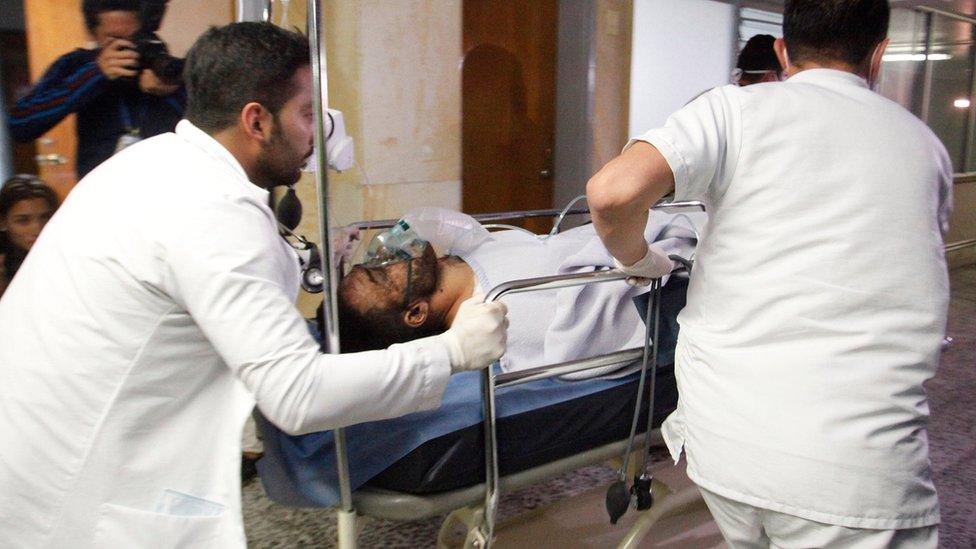
- Published9 December 2016
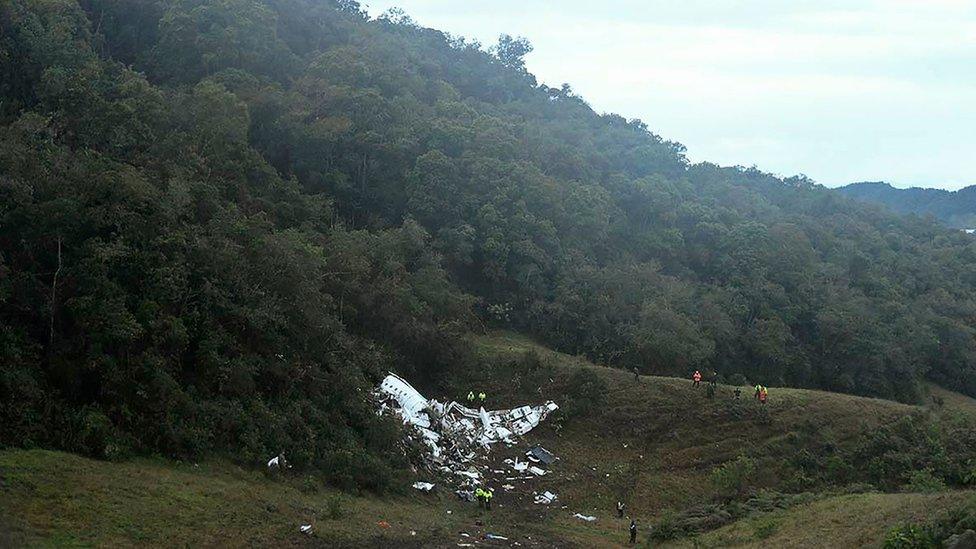
- Published30 November 2016
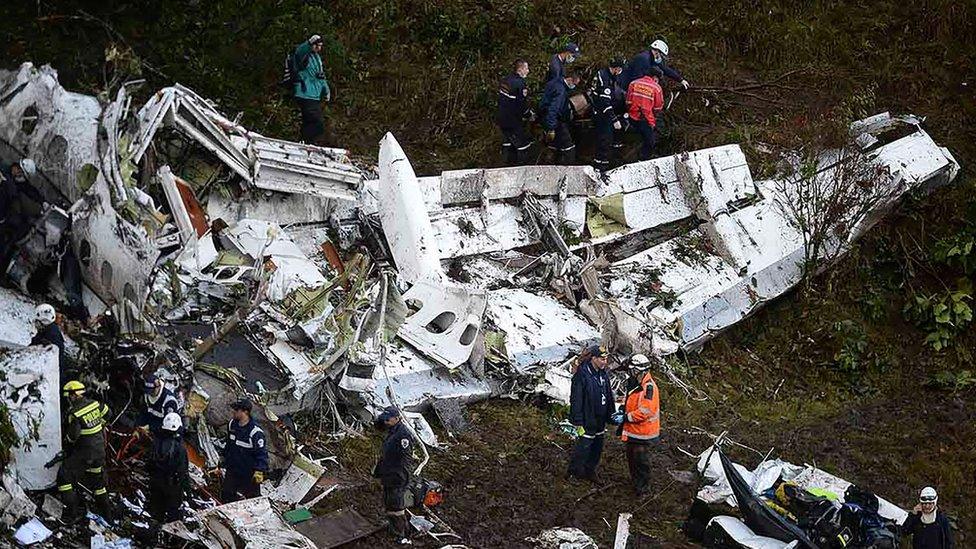
- Published29 November 2016
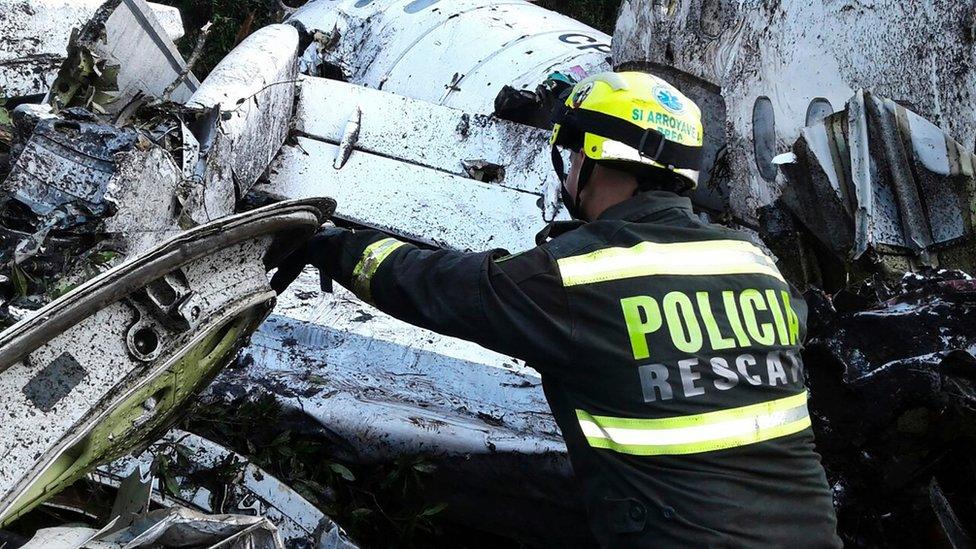
- Attribution
- Published29 November 2016

- Published29 November 2016
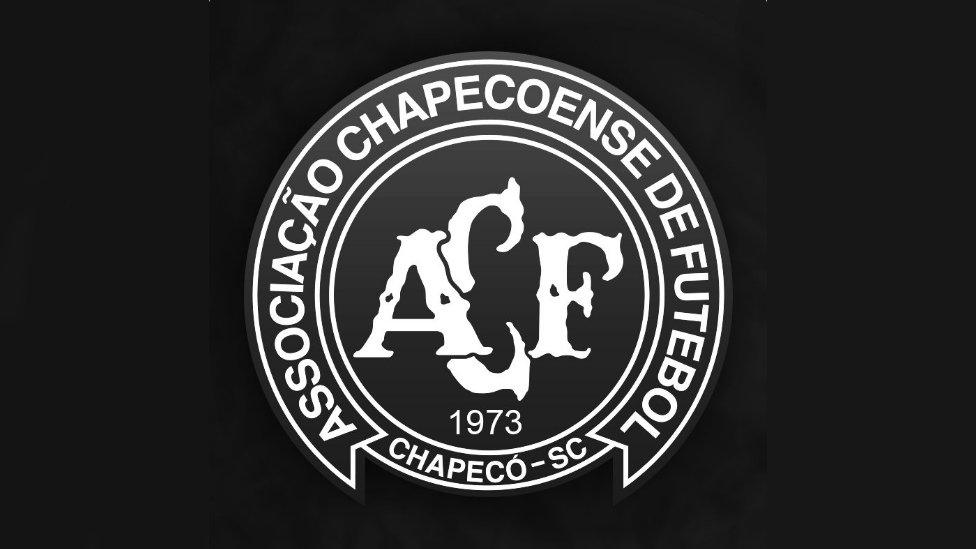
- Attribution
- Published29 November 2016
